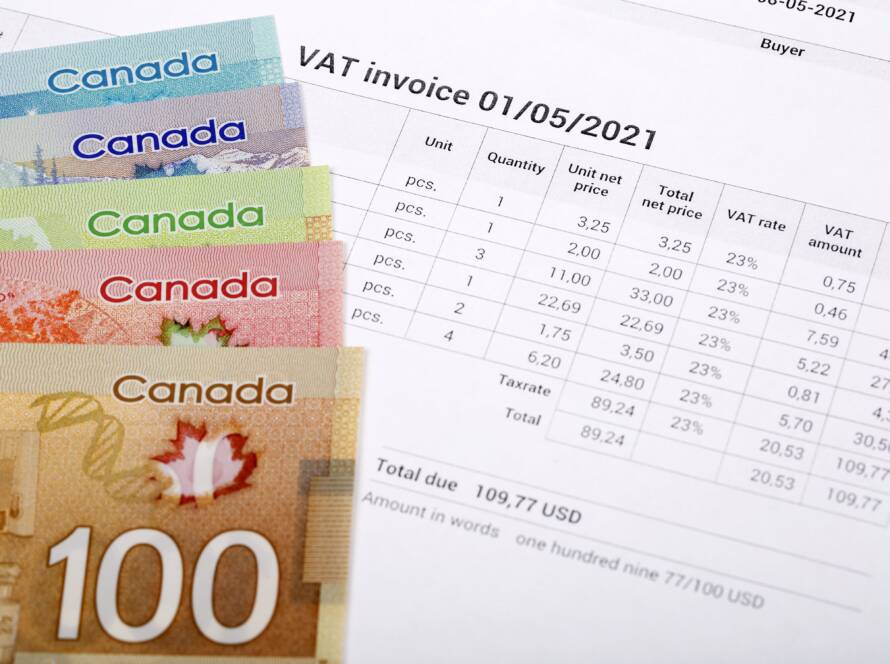Introduction: a strategic choice that goes beyond accounting
Accounting is no longer just an administrative burden. Today, choosing the best accounting software for your business is a truly strategic decision. The right tool not only helps you meet your tax obligations, but also saves time, improves cash flow monitoring, automates repetitive tasks and gives you a clear view of your organization’s financial health.
For SMEs, self-employed workers and growing businesses in Quebec, two solutions stand out: QuickBooks and Zoho Books. Each has its own advantages, peculiarities and limitations. The aim of this article is to give you the keys to comparing these software solutions in a structured way, so that you can make an informed decision based on your real needs.
Why accounting software is essential for SMEs
Before getting into the comparison, it’s important to remember why choosing the right accounting software has become essential.
The concrete benefits of a digital solution
Good accounting software allows you to :
Automate invoicing and payment management.
Track income and expenses in real time.
Produce clear financial reports quickly.
Facilitate the preparation of tax returns.
Centralize financial data and avoid manual errors.
In practice, this translates into significant time savings, improved data reliability and faster decision-making.
QuickBooks: the must-have for SMEs
QuickBooks is probably the best-known accounting software in North America. Originally designed for small businesses, it has become a benchmark thanks to its intuitive interface and numerous functions adapted to different profiles.
QuickBooks benefits
User-friendly interface: easy to learn, even for non-accountants.
Numerous integrations: compatible with several management tools and payment platforms.
Advanced automation: automatic bank reconciliations, recurring invoicing, payment reminders.
Detailed financial reports: balance sheets, cash flow, expense tracking.
Wide adoption: many accountants and tax specialists in Quebec have already mastered the tool.
QuickBooks limitations
Higher monthly cost than other solutions.
Some advanced features are reserved for higher packages.
May be too comprehensive for a self-employed person with simple needs.
Zoho Books: a flexible, affordable alternative
Less well-known than QuickBooks, Zoho Books is rapidly gaining in popularity. It is part of the Zoho suite of tools (CRM, project management, HR), making it a very attractive choice for companies looking for an integrated solution.
Benefits of Zoho Books
Affordable pricing: a competitive solution for small businesses.
Native integration with other Zoho applications.
Efficient automation: invoicing, reminders, payment tracking.
Collaboration: multiple users can be added at low cost.
Customizable reports: adjustable to specific needs.
Zoho Books limits
Less widespread in Quebec: some accountants and tax specialists are less familiar with it.
Fewer external integrations than QuickBooks.
May seem less intuitive to those used to North American solutions.
Comparison table: QuickBooks vs Zoho Books
| Criteria | QuickBooks | Zoho Books |
|---|---|---|
| Ease of use | Highly intuitive, suitable for non-accountants | Clear interface, but less widespread |
| Cost | Higher, varied packages | More affordable, good value for money |
| Integrations | Very numerous | More limited, especially in the Zoho ecosystem |
| Automation | Recurring invoicing, automatic bank reconciliations | Efficient but less advanced automations |
| Financial reports | Highly detailed, suitable for growing SMEs | Customizable for small businesses |
| Adoption in Quebec | Strong (accountants and tax specialists master it) | Weaker but growing |
How do I choose between QuickBooks and Zoho Books?
The choice depends mainly on the size of your company, your financial management needs and your budget.
QuickBooks is recommended if…
You’re a growing SME.
You need lots of detailed reports.
You want software that is widely recognized by tax professionals and accountants in Quebec.
You’re looking for a solution with lots of third-party integrations.
Zoho Books is recommended if…
You’re a small business or self-employed.
Your priority is optimum value for money.
You already use other Zoho applications.
You want a simple yet scalable solution.
Key factors to consider before choosing
Beyond QuickBooks and Zoho Books, here are the essential criteria to consider in your decision:
Budget: how much can you invest each month?
Complexity: are your needs simple or advanced?
Team: how many people need access to the software?
Ecosystem: do you already use other integrated applications (CRM, project management)?
Support: is your accountant or tax advisor familiar with the software you’ve chosen?
Best practices for successful accounting software implementation
Whatever your choice, it’s important to be well prepared. Here are a few tips:
Train your team: invest time in basic training.
Import your data with care: opening balances, invoices, customers, suppliers.
Set up your automations right from the start (billing, payments, reminders).
Customize your reports to reflect your priorities.
Work with a partner accountant who is familiar with the chosen software.
FAQ: answers to frequently asked questions
1. Is QuickBooks more suitable for SMEs than Zoho Books?
Yes, QuickBooks is often recommended for growing SMEs, as it offers more detailed reporting and wider adoption among tax professionals.
2. Is Zoho Books enough for the self-employed?
Absolutely. Zoho Books offers all the essential features at a more affordable price.
3. Can I migrate from Zoho Books to QuickBooks (or vice versa)?
Yes, but it requires careful planning and often the help of a professional to avoid data loss.
4. Is QuickBooks more expensive than Zoho Books?
Yes, on average QuickBooks is more expensive, but it offers more integrations and greater recognition in Quebec.
5. Does my accountant have to use the same software?
Not necessarily, but it makes it much easier to collaborate and transmit your financial data.
Conclusion: a choice guided by your real needs
Choosing the best accounting software for your business isn’t just a matter of comparing prices and features. It has to be aligned with your business model, your operational needs and the relationship you have with your accountant.
QuickBooks: a sure bet for growing SMEs looking for a recognized and comprehensive tool.
Zoho Books: a smart, affordable option for small businesses and independent entrepreneurs.
A final word of advice: always talk to your accountant before making a decision. At Athmane CPA Conseils, we support our customers in this strategic choice, so that they can concentrate on their growth rather than their accounting.




